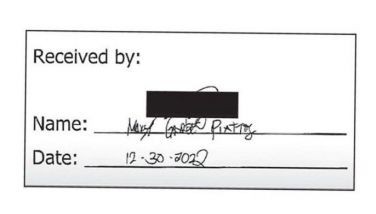P-Noy signs law vs disaster equipment theft
MANILA, Philippines - President Aquino has signed into law a bill that classifies stealing, tampering or destruction of equipment for detecting or mitigating natural disasters as offenses separate from theft and similar crimes under the Revised Penal Code.
Rep. Angelo Palmones of the party-list group Agham, one of the bill’s authors, said Republic Act 10344, or the Risk Reduction and Preparedness Equipment Protection Act of 2012, aims to protect devices installed by the government to predict natural calamities and mitigate their destructive effects.
By penalizing the stealing, tampering, dismantling, or destruction of such equipment, the law also aims to protect the lives and property of people affected by calamities, he said.
He said such offenses had in the past resulted in inaccurate prediction of calamities and their strength, and consequently in unnecessary loss of lives and properties.
“Approval of the bill by the House of Representatives and the Senate, and President Aquino’s signature to make it a law, are proof of how we value life and property,” he added.
Under RA 10344, risk reduction and preparedness equipment are devices used by the Department of Science and Technology (DOST), Philippine Atmospheric, Geophysical and Astronomical Services Administration, Philippine Institute of Volcanology, and National Disaster Risk Reduction and Management Council (NDRRMC).
The law mandates these agencies to do a complete inventory of their equipment, together with their parts and accessories. Such equipment include radars, weather forecasting instruments, flood monitoring devices, seismographs, and tsunami warning systems.
It prohibits the stealing, taking, possession, selling, buying, tampering, dismantling, or disassembling of such equipment, their parts or accessories. It bans anyone from benefiting from the proceeds or fruits of such unlawful acts.
Possession or custody of a disaster risk reduction device is prima facie proof of violation of RA 10344.
The law imposes on offenders a prison term ranging from two years to 15 years, or a fine of P200,000 to P3 million, or both, upon the discretion of the court, depending on the gravity of the offense.
A government employee assisting in the commission of any of the prohibited acts would be considered a principal, and would face dismissal from the service and forfeiture of benefits, on top of the primary penalties.
The DOST secretary, in coordination with the NDRRMC, would issue implementing guidelines.
- Latest
- Trending





























